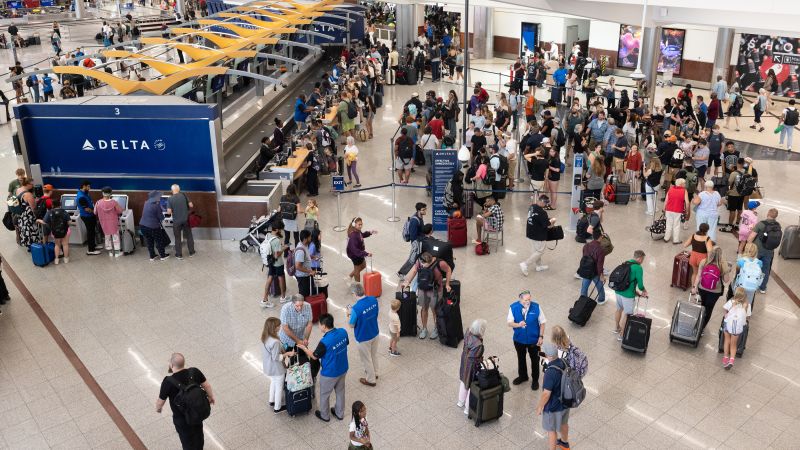Summarize this content to 2000 words in 6 paragraphs
The war of words over Delta’s massive service meltdown, set off by CrowdStrike’s disastrous software update, has grown ugly.
In a letter sent Thursday to CrowdStrike’s attorneys written by Delta’s high-powered lawyer, David Boies, the airline lashed out at the cybersecurity company, which has apologized for introducing a bug that led to a global tech outage. Although CrowdStrike said it took responsibility for the initial outage, it has said Delta was responsible for thousands of cancellations that piled up over the course of a week – long after its competitors came back online.
Boies, hired to lead Delta’s lawsuit against CrowdStrike, said the tech company was “grossly negligent” and was solely responsible for the outage.
“We appreciate CrowdStrike’s ‘apology to Delta,’” said Boies. “However, an apology alone in these circumstances is vastly inadequate, and when accompanied by misstatements and attempts to shift the blame to Delta of doubtful sincerity.”
Delta canceled 7,000 flights between July 19 and July 24 as a result of the outage. In a regulatory filing Thursday, Delta reiterated the cancellations would cost the company $500 million, mostly because of reimbursements it had to pay to customers.
CrowdStrike and Microsoft over the past week have claimed Delta’s outage lasted substantially longer than its rivals’ service downtime, because Delta refused their help to recover and because Delta failed to modernize its information technology systems.
But Boies called Delta’s IT systems “world class” and claimed Delta’s outage lasted longer because it was so heavily reliant on CrowdStrike and Microsoft.
“Contrary to your misrepresentation of Delta’s technology, the reason for Delta’s disproportionate experience relative to other airlines, was its reliance on CrowdStrike and Microsoft,” Boies said. “Delta’s reliance on CrowdStrike and Microsoft actually exacerbated its experience in the CrowdStrike-caused disaster.”
Boies said 60% of Delta’s mission-critical systems depended on Microsoft or CrowdStrike, which works to prevent breaches and intrusions in systems. He also disputed the companies’ claims that Delta turned down help and worked around the clock to bring Delta back online.
To fix systems brought down by CrowdStrike, computers needed to be restarted, manually, one by one. Delta claimed that after CrowdStrike discovered a way to automate the process, CrowdStrike introduced yet another bug that prevented many of its computers from coming back online.
“CrowdStrike also did not work “tirelessly” to help Delta restore its systems,” Boies said. “CrowdStrike’s offers of assistance during the first 65 hours of the outage simply referred Delta to CrowdStrike’s publicly available remediation website.”
In response, CrowdStrike said in a statement that its CEO, George Kurtz, called Delta board member David DeWalt within four hours after the July 19th outage began, and DeWalt posted on LinkedIn that the tech company “have done an incredible job.”
“Delta continues to push a misleading narrative,” a CrowdStrike spokesperson said in a statement. “CrowdStrike’s and Delta’s teams worked closely together within hours of the incident, with CrowdStrike providing technical support beyond what was available on the website.”
The battle between Delta and the tech companies kicked off late last month when Delta CEO Ed Bastian said in an interview on CNBC that CrowdStrike was willfully negligent in its post-crash conduct: “They haven’t offered us anything,” Bastian said. “Free consulting advice to help us.”
After Boies sent his first letters to CrowdStrike and Microsoft earlier this month, both companies lashed out in response. CrowdStrike said Delta ignored its help, and Microsoft said Delta’s mismanagement contributed to the cancellations.
As the companies go back and forth in an increasingly public and nasty battle, Delta customers this week have filed a class-action lawsuit, alleging that Delta refused or conditioned refunds to passengers as it struggled with mass cancellations. The US Department of Transportation is investigating those claims.


